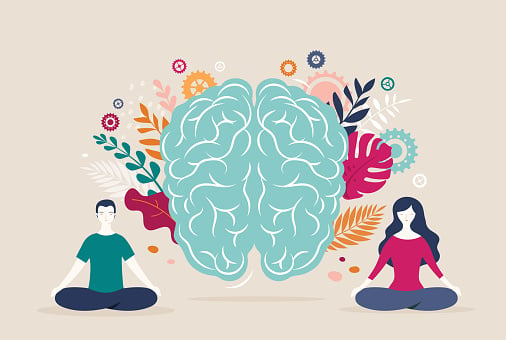“The novelty of learning something new or going to a new place is what forces the brain to work harder and stay sharper.” (U.S. News)
Just like you need to exercise your physical body to stay fit, brain exercises can help to boost your memory and otherwise keep your mind sharp. Fortunately, there are plenty of entertaining or calming ways to do this, and here are seven brain exercises to consider.
Enjoying Games and Puzzles
There’s nothing wrong with having fun while keeping your mind active—and, in fact, if you like what you’re doing, it may well be more effective because you’ll keep on doing it. This can be as simple as completing a daily crossword puzzle or playing games that require reasoning and logic. Choose a jigsaw puzzle that intrigues you or play a mentally stimulating computer game that requires close attention to details. And yes. Have fun!
Satisfy Your Curiosity
Do you want to learn to speak Spanish? Play the flute? Take a class in ancient Egyptian history? As you engage in lifelong learning, you can gain skill and/or increase your knowledge while also helping to keep your brain sharp and functioning well. According to the Alzheimer’s Association, continuous learning seems to help protect people from developing certain kinds of dementia, perhaps because brain cells and connections are strengthened.
Here’s a bonus. Although COVID-19 has caused many in-person programs to be canceled — and although you may be staying much closer to home nowadays — more places are offering free or low-cost programs online. Cuyahoga County Community College, for example, is offering four-week classes on a wide range of topics for just $18. You just need to be aged 55 and up, and then you can choose the classes you want to take in each of these months: August, September, October and November. And, because classes are virtual, you can take them with friends from all around the country.
Making Maps from Memory
VeryWellMind.com offers up this brain-sharpening challenge. Think about the town — or at least the neighborhood — where you live, and then draw a map of it from memory. Include street names of significance, landmarks, bodies of water, and so forth. Then, compare what you drew to a real map. How close were you? Too easy? Then draw a map of another area that you’ve visited.
This exercise can help your brain to retain street layouts, which can activate multiple parts of the brain and help you to remain a good driver for years to come.
Use Your Non-Dominant Hand
To keep your cognitive abilities strong, try using your non-dominant hand when you eat. When you doodle. When you write. This helps you to use a different part of the brain (or parts!) to help increase mental capacity. It doesn’t matter how well you can write, for example, with your left hand if you’re right-handed (or vice versa). It’s really about the process.
Engage All Five Senses
According to Harvard, the more senses you use as you learn something new, the more of your brain will work to retain the memory. So, if you’re becoming interested in birding and you see one at a local park, pay attention to what this particular bird looks like, along with the sounds it makes, what the area smelled like where you saw that bird, and what the bark of the tree felt like beneath your fingertips when you first saw it landing on a branch. Engaging in multi-sensory memory practices can make life more interesting while helping to keep your mind sharp.
Meditation Matters
According to Healthline, meditation can actually increase your brain’s information-processing ability and help you to fine-tune your memory. Seriously! And those brain health benefits are ones that go beyond the ways in which meditation can benefit you in stress reduction.
Believe in Yourself
This brain health tip also comes from Harvard. They share how people who are middle-aged or older perform less well on memory tasks if they’ve heard negative messaging about memory as a person ages — and perform better when given messages that older adults can have good memories.
So, although it may be tempting to joke about having senior moments, your time might be better spent enjoying mentally stimulating activities that keep your mind active and boost your memory.










